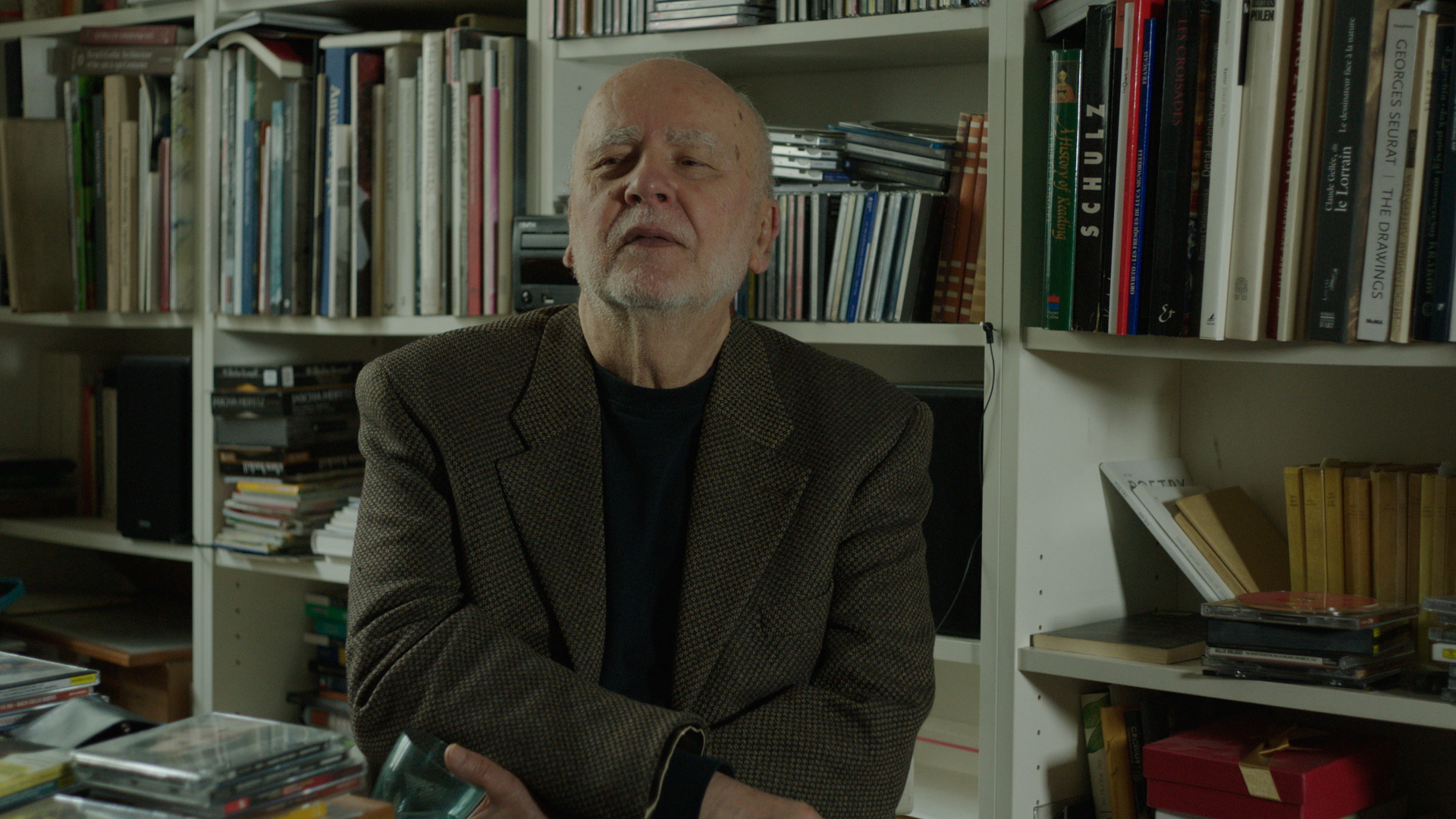[Q] Czy miałeś już jasną świadomość, że to poezja jest twoją drogą i jeżeli tak, to kto był tym mistrzem – czy to był Herbert, czy to był Miłosz czy ktoś inny?
To znaczy w pewnym sensie to, że ja chcę pisać, to się we mnie zadecydowało, kiedy miałem jakieś 12 lat, bo właśnie jak w te zimowe wieczory czytałem Verne’a i innych autorów, to... to pomyślałem, że to jest najwspanialsza rzecz na świecie – książki. Że ja to chcę robić. Ale przez długi czas nic nie pisałem, po prostu uważałem, że muszę się przygotować, że mam przed sobą wiele lat przygotowań. Jadę... pojechałem do Krakowa na studia też po to, żeby móc pisać i psychologia była troszkę pretekstem. Później studiowałem filozofię, tak równolegle z psychologią. Filozofia mnie bardziej interesowała niż psychologia, ale też wiedziałem, że to nie jest... że ja nie jestem filozofem. Nigdy nie zapomnę, chodziłem do bibliotek, do czytelni jednej czy drugiej, a zamawiałem... brałem sobie do tego stolika kilka książek – dwie, trzy, które były zadane na zajęcia uniwersyteckie, a dwie, trzy dla przyjemności. I rzadko mi się udawało odrzucić pokusę, żeby czytać te dla przyjemności – czytałem wiersze, czytałem eseje. A na samym końcu to w pośpiechu to, co było zadane na uniwersytecie. To znaczy ja nie wiedziałem, czy ja będę poetą czy prozaikiem. Na początku myślałem, że bardziej... że to jest bardziej proza, opowiadania. Pisałem różne opowiadania, których prawie nie publikowałem, pisałem... właściwie, jeśli chodzi o publikacje, no to są wiersze. Pierwszy tom, następna publikacja, druga, trzecia też są wiersze. Potem się zaczynają recenzje i szkice literackie. Dopiero później po latach, to znaczy nie po bardzo, ale troszkę później jednak – jakieś pierwsze opowiadania. Później napisałem powieść, która się nazywała Ciepło zimno. Wyszła, kiedy miałem 30 lat. I wciąż... wciąż nie byłem do końca pewien, czy jestem... To znaczy nie ulegało dla mnie wątpliwości, że pisanie to jest mój żywioł – że chcę pisać, że nic innego nie wchodziło w rachubę. Ale wybór między prozą a poezją nie był od początku taki jasne, dopiero po paru dobrych latach zacząłem rozumieć, że ja się lepiej, mocniej wypowiadam w wierszu niż w prozie narracyjnej. Natomiast esej, szkic literacki został zawsze jako taki element dodatkowy, jako coś, co towarzyszy pisaniu wierszy.
Tak że Kraków... no Kraków dla mnie był od początku tym miejscem do pisania, wiedziałem, że tam... jakoś czułem, że będę tam miał przyjaciół, których... i pojawili się ci przyjaciele. Właśnie, no, Julian Kornhauser był pierwszym takim ważniejszym, potem Jerzy Kronhold, który... który jest z Cieszyna, do tej pory mieszka w Cieszynie. I tak dalej, tak że to było takie budowanie pewnej... pewnej wspólnoty. A potem ucieczka od niej, ale to już może temat na następny raz.
[Q] Did you already have a clear idea that poetry was the path you'd take and if so, who was your master – was it Herbert or Miłosz or someone else?
Well, in a certain sense, the decision that I was the one who was going to be writing was already formed when I was 12 years old when I was spending those winter evenings reading Verne and other authors; I thought then that books were the best thing in the world. That this was something I wanted to do. Yet I didn't write anything for a long time because I felt I needed to prepare myself, that I had many years ahead of me in which I could prepare. I went to university in Kraków to write and the psychology course was something of an excuse. Later, I studied philosophy along with psychology. I found philosophy more interesting that psychology, but I knew I wasn't a philosopher. I'll always remember how I used to go to libraries, to either one or another and I'd order... I'd take a few textbooks to my desk – two or three that were set reading for my university course, and two or three for pleasure. I rarely managed to resist the temptation of reading the books I'd take out for pleasure – I read essays, I read poetry. At the very end, I rushed through the set reading.
I mean, I didn't know if I was going to be a poet or a prose writer. Initially, I thought more about prose, stories. I wrote all kinds of stories which I very nearly didn't publish. I wrote... actually what was published was poetry. The first volume, the next published work, the second, the third they were all poetry. Then came reviews and literary sketches. It wasn't until some years later, not many but a little later that my first stories came out. I then wrote a story called Ciepło, Zimno [Hot and Cold]. It came out when I was 30, and I still wasn't quite sure if I was... I mean, I had no doubts that writing was my element – that I wanted to write, that I wasn't taking anything else into consideration. Yet the choice between prose and poetry wasn't quite so clear-cut initially and it wasn't until few years later that I began to understand that I could express myself better and more powerfully through verse than through narrative prose. Essays, on the other hand, and literary sketches remained as an additional element, as something that accompanied the writing of poetry.
So Kraków... well, Kraków was the place for me where I wrote right from the start, and I knew, I somehow felt that I would have friends there who... and friends appeared. The first, most important friend was Julian Kornhauser, then came Jerzy Kronhold who is from Cieszyn and who lives there still. As so it carried on, this establishing of a certain kind of community followed by my attempt to escape from it, but that's a topic for another time.






